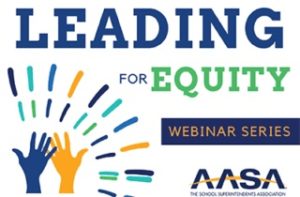 “Each one of us can make a difference. Together we make change.”
“Each one of us can make a difference. Together we make change.”
– ― Barbara Mikulski
Greetings to you!
This Buzz focuses on how we move forward with reopening our lives and schools. As the U.S. Department of Education states, “For most schools, returning to the status quo will not address the full impact of COVID-19 on students’ social, emotional, physical, mental health, and academic needs or the impact on educator and staff well-being” (Roadmap to Reopening Safely and Meeting All Students’ Needs, p. 1). Accordingly, the federal resources available to help states and localities have been carefully multi-faceted to address many deeper realities of recovery.
Developing sound reopening plans clearly needs to be grounded in and informed by the needs and voices of the community itself, with keen attention to those hardest hit by the pandemic. To that end, this Buzz shares with you on-point resources about community involvement, strategies for engaging the full diversity of community members in planning efforts, and the role that data can play in informing those plans and how recovery funds are used.
Best to you all,
The CPIR Team
_______________________
 ED Covid-19 Handbook: Roadmap to Reopening Safely and Meeting All Students’ Needs (Volume 2)
ED Covid-19 Handbook: Roadmap to Reopening Safely and Meeting All Students’ Needs (Volume 2)
Mentioned in the first paragraph of this Buzz, the Department of Education’s Roadmap is a treasure trove of guidance for schools and communities. Examples abound of approaches used to tackle challenges such as providing schools meals, providing technological access to families who don’t have it, transporting students, or locating and reengaging students who are chronically absent. Check out the clever ways that others have gathered data from community members about their range of needs, and how they’ve engaged families in providing continuous input.
Relationship Building: A Strategy Guide for Educators
Here’s an easy-to-read 24-page guide full of strategies and considerations to help educators build strong, authentic, and trusting relationships with students and families, right from the start of the school year.
 Webinar and Podcast | Developing Data-Driven Equity Practices and Partnerships
Webinar and Podcast | Developing Data-Driven Equity Practices and Partnerships
Using data to determine the needs of economically disadvantaged students and make good decisions about them can help provide more equitable outcomes, meet the challenges of the COVID-19 pandemic, and increase opportunities for high school graduates to succeed in college and their careers. Find out how one school district put its data to use to determine what interventions were needed and by whom, the structure of the corresponding multi-level system of support, and clear levels of support for academic, attendance, and discipline issues.
Webinar | Guidance for State and Local Leaders on Flexible Options to Increase and Support the Special Education Pipeline
The new American Rescue Plan Act funding comes with tremendous flexibility, and thus, tremendous potential for local education leaders. This archived webinar, held May 4, 2021 and hosted by the Council for Exceptional Children, is 1 hour-plus long, and features “thought leaders” discussing how the ARP can be used to increase and support special education.
_______________________
 This eNewsletter from the CPIR is copyright-free.
This eNewsletter from the CPIR is copyright-free.
We encourage you to share it with others.
Center for Parent Information and Resources
c/o SPAN, Inc.
35 Halsey St., Fourth Floor
Newark, NJ 07102
https://www.parentcenterhub.org
Subscribe to the Buzz from the Hub.
See past issues of the Buzz.
____________________________________________________________
Publication of this eNewsletter is made possible through Cooperative Agreement H328R180005 between OSEP and the Statewide Parent Advocacy Network (SPAN). The contents do not necessarily reflect the views or policies of the Department of Education, nor does mention of trade names, commercial products, or organizations imply endorsement by the U.S. Government or by the Center for Parent Information and Resources.

